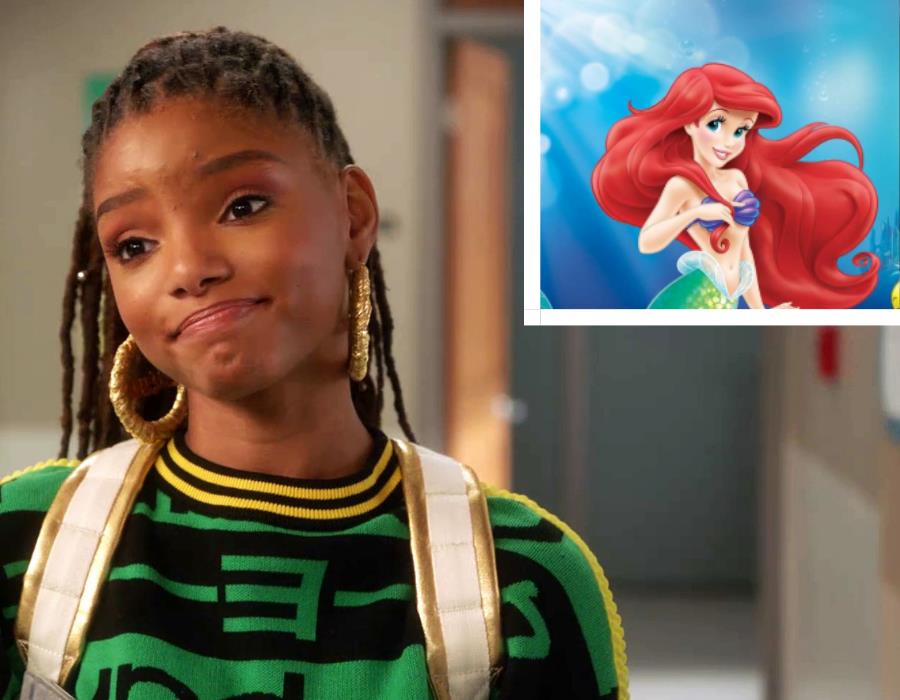Fiction has a fantastic purpose. The point of fiction is not to tell a story extremely accurately in the most unimportant ways possible. The point of fiction is to carry a complex message in the most potent and effective way possible. Fiction is not documentary and has never strived to be. (That’s what… well, documentaries, are for.)
“The Little Mermaid”, the original story by Hans Christian Andersen, has never been an accurate portrayal of life in 1800s Denmark. I hate to say it, but I am left with no choice: There were no mermaids in Denmark at that time or any other time. Actually, the country of Denmark is never mentioned once in “The Little Mermaid.” It could have been set in Madagascar, for all we know. (Madagascar would actually be a better place to look for evidence of mermaid lifeforms, in my opinion.) Simply put, fiction is no place for historical fact-checking. The same is true for another example given, Netflix’s 2020 remake of “Dracula.” I know Transylvania was a weird place, but we really don’t have any record of vampires ever having lived there. (I know, it sucks, right? I mean, can we get one vampire?)
The fact-checking is ill placed and detracts from the true purpose of fictional stories, which focus should be on the themes of the work. In other words, what are the greater questions of this piece? When creating a movie remake, the overarching theme of the work is what keeps the essence of the story, and the different ways in which that theme is expressed changes as the culture that both receives and influences the work changes with time—everything else is ornamentation. It is not the color one’s skin or the presumed heterosexuality that keeps the story’s essence.
The cultural products we absorb — movies, TV shows, books, music, TikTok videos, are all influenced by and influence the culture surrounding it. We are no longer living in the 20th century, where POC (people of color) voices and all others in marginalized groups are muzzled by gatekeepers.
A potent theme of “The Little Mermaid,” is the longing for something you can never have, and the exploration of what happens when you get what you always wanted. I assume this theme will still be prevalent in the live-action remake, and that’s what will carry it over, not Ariel’s white skin.
Furthermore, the Disney version has not been accurate to the original story. At the end of the story, Ariel (unnamed mermaid in the original) turns into seafoam and another woman marries the prince. Why hold a remake to accuracy but not the widely known Disney movie? The situation begs the question: Why not point out any of the many lapses in accuracy that do not have to do with race and sexuality? Because the truth is that this isn’t about accuracy. Those online reacting repugnantly to the presence of non-white, non-straight, generally non-status quo actors in film and television feel something is being taken away from them. But it is an absurd notion to say that these stories cannot have black or lesbian characters. Straight, white people have been at the center stage of the vast majority of film since its invention. Culture is changing, and previously-silent audience members are making it known that film and television has been all-establishment for far too long. If you feel affronted by non-white, not-heterosexual castings in film and television, you might not belong in the 21st century.
To say that these stories can’t have black or gay characters is in way, saying these narratives are only for white, straight people. The message is, these things happen to white, straight folks, and not to the rest of us. But now people are demanding films that do better things, not the things that have already been done.
I remember my cousin taking me to see “Mulan” in theaters when it came out in 1998. I was five years old. I am biracial, Caucasian and Chinese and that movie meant a lot to me as a kid, and still does. I am still surprised at how my five-year-old self knew every Disney female lead was white, but this one wasn’t. That story probably influenced my 5-year-old self in ways I still have yet to discover. I felt incredibly seen by that film, even as a kindergartener. I saw my culture completely out of the context I’d always seen it in. My kindergartener self knew this, and I wonder how many little black girls will know the same thing when they watch the live-action remake of “The Little Mermaid.”




